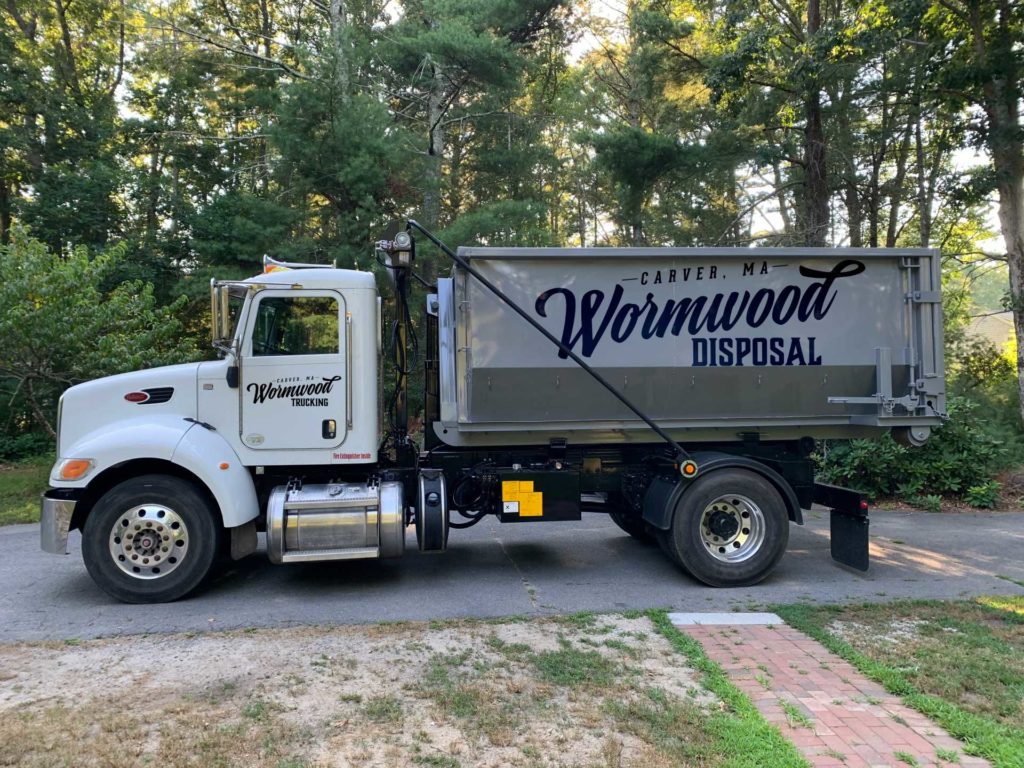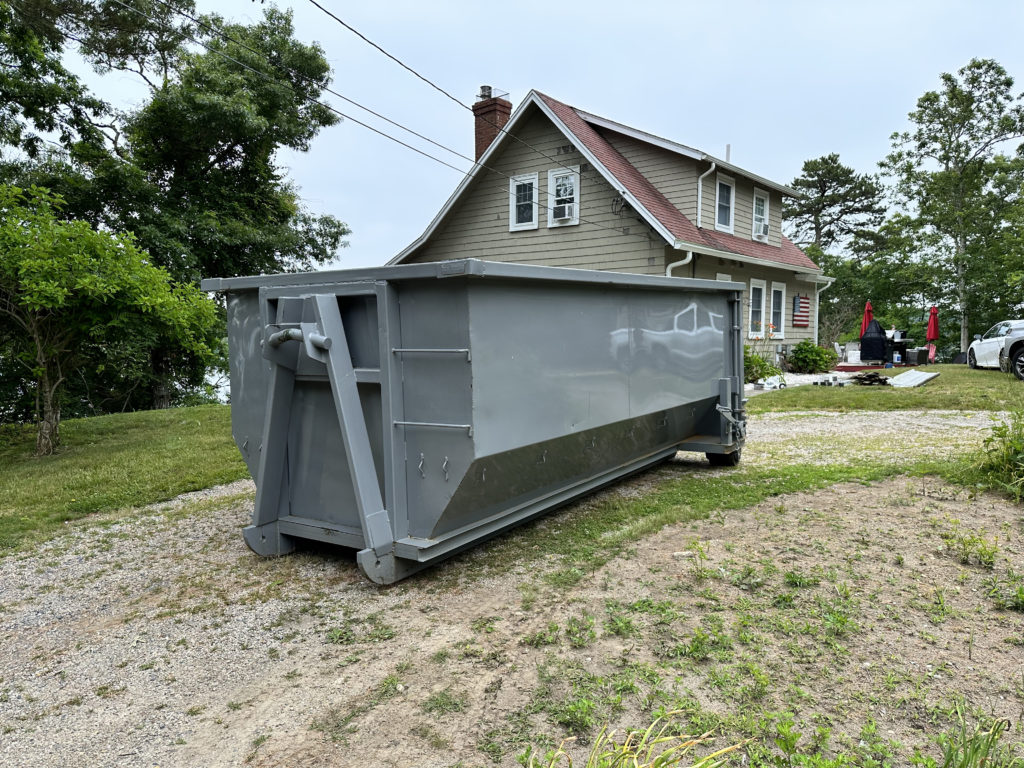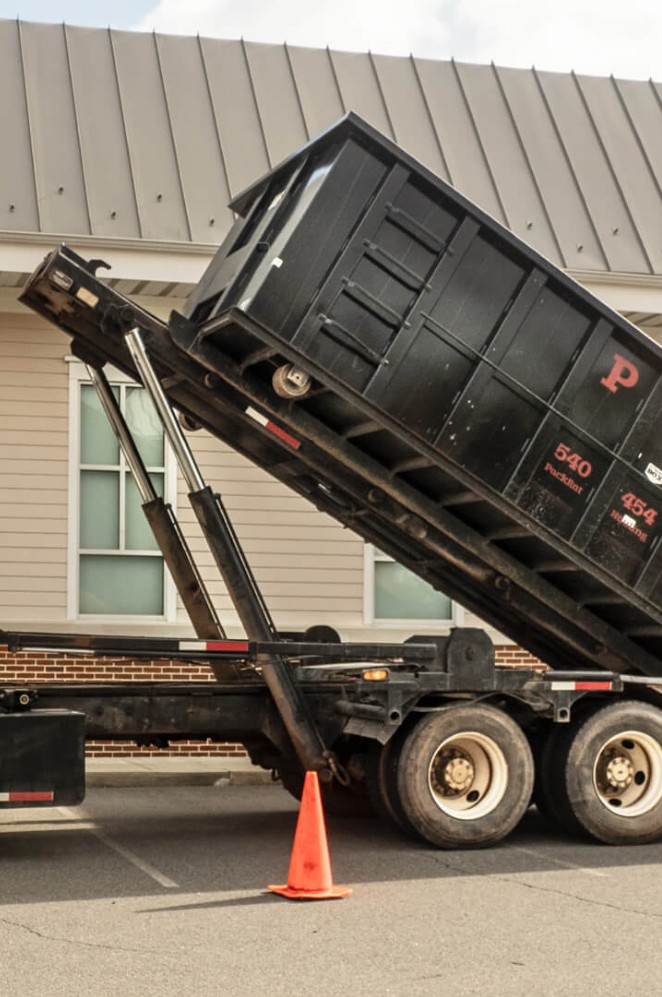What Is the Most Common Size Dumpster Rental? A Guide to Choosing the Right Size
What is the most common size dumpster rental? If you’re planning a waste removal project and looking to rent a dumpster, this is likely the first question on your mind. Dumpster rentals are a popular choice for homeowners and businesses alike, providing a convenient way to dispose of construction debris, household waste, and more. In this guide, we’ll explore the most common dumpster rental size and provide tips on how to choose the right size for your project.

Introduction
In the world of waste management, dumpster rentals are a popular choice for individuals and businesses alike. A dumpster is a large metal container specifically designed to hold and transport waste. Dumpster rentals provide an accessible and cost-effective way for people to dispose of their waste in a convenient manner.
Dumpster rentals are essential for several reasons. Firstly, they help to maintain clean and safe environments by providing a designated place for waste disposal, reducing the risk of littering and contamination. Secondly, they are a time and cost-effective solution that eliminates the need for individuals and businesses to transport waste to landfills or other disposal facilities themselves, saving them both time and money.
What is the Most Common Size Dumpster Rental?
One of the most common questions people have when renting a
dumpster is, “What size do I need?” It’s important to choose the right size for your project to avoid the hassle of renting multiple dumpsters or having to make extra trips to the landfill.
While the answer to this question will depend on the specific project you’re working on, there are a few dumpster sizes that are commonly rented. These include:
10-Yard Dumpster
The 10-yard dumpster is the smallest size that is commonly rented. It has a capacity of 10 cubic yards of waste, which is roughly equivalent to three pickup truck loads. This size dumpster is often used for small projects such as cleaning out a garage or a single room in a house.
Dimensions:
–
Length: 12 feet
–
Width: 8 feet
–
Height: 3.5 feet
Typical projects:
– Garage cleanouts
– Small home renovations
–
Yard waste removal
Advantages:
– Small size makes it easy to place in driveways or other tight spaces.
– Lower cost than larger dumpsters.
Disadvantages:
– Limited capacity may require multiple trips to the landfill.
– May not be suitable for larger projects.
20-Yard Dumpster
The 20-yard dumpster is a mid-size option that is suitable for a wide range of projects. It has a capacity of 20 cubic yards of waste, which is roughly equivalent to six pickup truck loads. This size dumpster is often used for larger home renovation projects or smaller construction sites.
Dimensions:
–
Length: 22 feet
–
Width: 8 feet
–
Height: 4 feet
Typical projects:
– Home renovations
– Construction sites
– Medium-sized landscaping projects
Advantages:
– Larger capacity than the 10-yard dumpster.
– Suitable for a wide range of projects.
Disadvantages:
– May not fit in smaller driveways or tight spaces.
– Higher cost than the 10-yard dumpster.
30-Yard Dumpster
The 30-yard dumpster is a larger option that is suitable for bigger projects. It has a capacity of 30 cubic yards of waste, which is roughly equivalent to nine pickup truck loads. This size dumpster is often used for large home renovation projects, construction sites, or commercial projects.
Dimensions:
–
Length: 22 feet
–
Width: 8 feet
–
Height: 6 feet
Typical projects:
– Large home renovations
– Commercial construction sites
– Major landscaping projects
Advantages:
– Large capacity makes it ideal for bigger projects.
– May be more cost-effective than renting multiple smaller dumpsters.
Disadvantages:
– Requires a larger space for placement.
– Higher cost than the 20-yard dumpster.
40-Yard Dumpster
The 40-yard dumpster is the largest size that is commonly rented. It has a capacity of 40 cubic yards of waste, which is roughly equivalent to 12 pickup truck loads. This size dumpster is often used for large commercial projects or major construction sites.
Dimensions:
–
Length: 22 feet
–
Width: 8 feet
–
Height: 8 feet
Typical projects:
– Large commercial construction sites
– Major home renovations
– Demolition projects
Advantages:
– Very large capacity makes it ideal for the largest projects.
– May be more cost-effective than renting multiple smaller dumpsters.
Disadvantages:
– Requires a very large space for placement.
– Higher cost than all other sizes.
Choosing the right dumpster size is crucial for a successful waste management project. By considering the size of your project and the type of waste you’ll be disposing of, you can choose the right dumpster size for your needs. In the next section, we’ll discuss the factors you should consider when choosing a dumpster size and how to estimate the amount of waste you’ll need to dispose of.

How to Choose the Right Dumpster Size
Choosing the right dumpster size for your project is crucial to ensure that you have enough space for all of your waste without overpaying for unused capacity. Here are some factors to consider when choosing the right dumpster size:
1. The Amount of Waste You Need to Dispose of
The amount of waste you need to dispose of is the most crucial factor in determining the right dumpster size. If you order a dumpster that is too small, you’ll end up with excess waste that won’t fit, which can lead to additional fees and complications. On the other hand, if you order a dumpster that is too large, it will take up unnecessary space and cost you more than you need to pay. To estimate the amount of waste you need to dispose of, you can use the formula mentioned earlier.
2. The Type of Waste You Need to Dispose of
The type of waste you need to dispose of will also impact the size of the dumpster you need. Certain types of waste, such as
construction debris, may require a larger dumpster size due to their weight and volume. On the other hand, if you’re disposing of
household items or general waste, a smaller dumpster may suffice.
3. The Available Space for Dumpster Placement
Another factor to consider when choosing the right dumpster size is the available space for dumpster placement. If you have limited space, you may need to opt for a smaller dumpster size that can fit in your desired location. Be sure to measure the space you have available before ordering a dumpster.
4. Your Budget
Your budget is also an important consideration when choosing the right dumpster size. Larger dumpster sizes typically cost more than smaller sizes, so it’s important to choose a size that fits your budget while still meeting your waste disposal needs. Be sure to ask your rental company about any additional fees, such as delivery or pickup fees, that may impact your overall cost.
Keep in mind that estimating the right dumpster size can be challenging, and it’s always better to order a slightly larger dumpster than you think you’ll need to avoid any complications. Your rental company can also help you determine the best size for your needs based on the specifics of your project.

Tips and Best Practices for Renting a Dumpster
Aside from choosing the right dumpster size, there are several tips and best practices to keep in mind when renting a dumpster.
Plan Ahead
Planning ahead is crucial to avoid delays and additional fees. Here are some tips to help you plan:
- Estimate the amount of waste you’ll be disposing of to determine the right dumpster size.
- Consider the duration of your project and when you’ll need the dumpster.
- Check with your local government for any regulations or permits required for dumpster placement.
Choose the Right Rental Company
Choosing the right rental company is essential for a positive experience. Here are some tips to help you find a reputable rental company:
- Research online reviews and ratings to gauge the company’s reputation.
- Check the company’s pricing structure and policies, including any additional fees.
- Ask for recommendations from friends, family, or colleagues who have rented dumpsters before.
Follow Proper Disposal Guidelines
Proper disposal guidelines are important for ensuring the safety of your community and the environment. Here are some tips for proper disposal:
- Check with your rental company for any prohibited items, such as hazardous waste or electronics.
- Separate recyclable materials to minimize waste and promote sustainability.
- Follow proper disposal guidelines for each type of waste, such as bagging trash and bundling branches.
By following these tips and best practices, you can have a smooth and hassle-free dumpster rental experience.

Dumpster Rental Costs
One of the most important factors to consider when renting a dumpster is the cost. Dumpster rental costs can vary depending on several factors, such as the size of the dumpster, rental duration, and the location of the rental company.
Factors Affecting Dumpster Rental Costs
- Size of Dumpster: The size of the dumpster is a significant factor in determining the cost of renting a dumpster. The larger the dumpster, the higher the rental cost. The most common dumpster rental size, 20 yards, will cost around $350-$500 for a week-long rental.
- Rental Duration: The rental duration is also a factor in the overall cost of the dumpster rental. The longer you need the dumpster, the higher the rental cost. Most rental companies offer rental periods ranging from one to seven days.
- Location: Location is another factor that can impact the cost of dumpster rentals. Dumpster rental prices can vary depending on where you are located.
Dumpster Rental Costs by Size
Here are some general guidelines for dumpster rental costs based on dumpster size:
| Dumpster Size |
Cost Range |
| 10-yard dumpster |
$250-$400 |
| 20-yard dumpster |
$350-$500 |
| 30-yard dumpster |
$400-$550 |
| 40-yard dumpster |
$450-$600 |
Keep in mind that these are just estimates, and actual costs may vary depending on your specific needs and location. Additionally, some rental companies may charge additional fees for things like overweight or prohibited items.
Tips for Finding Affordable Dumpster Rentals
- Get Quotes from Multiple Rental Companies: To ensure you’re getting a fair price, it’s a good idea to get quotes from multiple rental companies. Be sure to ask about any additional fees or charges that may affect the final cost.
- Read the Fine Print: Before signing any rental agreements, make sure to read the fine print carefully. This will help you understand any additional fees or charges that may be associated with the rental.
- Plan Ahead: Planning ahead can help you save money on dumpster rentals. Try to schedule your rental during off-peak seasons or when demand is lower. This can help you secure a better price.
By following these tips, you can find an affordable dumpster rental that meets your needs. Remember to factor in the cost of the rental when budgeting for your waste management project.

Insider Tip: Recycling and Donating Items
When planning your waste removal project, consider recycling or donating items that are still in good condition. Many rental companies offer recycling services, which can help to reduce the amount of material that ends up in landfills. In addition, there are many local organizations that accept donations of household items, furniture, and building materials, which can help to reduce waste and benefit those in need.
Recycling and donating items not only helps the environment, but it can also save you money on dumpster rental costs. By reducing the amount of waste you need to dispose of, you can choose a smaller dumpster size or rent a dumpster for a shorter period of time.
If you’re not sure where to start, check with your rental company or local government to find recycling and donation options in your area. By taking advantage of these services, you can make the most of your dumpster rental experience and ensure a successful waste removal project.

Where to Find Dumpster Rental Services
If you are looking for a dumpster rental company, there are several options available both online and in-person. However, it’s essential to choose a reliable provider that offers competitive pricing and high-quality customer service. Here are some online resources you can use to find local dumpster rental services:
1. Yelp
Yelp is a popular review platform where you can find local businesses, including dumpster rental companies. You can search by location, read reviews from previous customers, and compare prices.
2. Google Maps
Google Maps is a helpful tool for finding local businesses, including dumpster rental companies. You can filter your search based on location, read reviews, and get directions to the rental company’s location.
3. HomeAdvisor
HomeAdvisor is an online marketplace that connects homeowners with service professionals, including dumpster rental companies. You can request quotes from multiple companies, read reviews, and compare prices.
4. Angie’s List
Angie’s List is a website that provides reviews of local service providers, including dumpster rental companies. You can search for providers in your area, read reviews from previous customers, and compare prices.
When choosing a dumpster rental company, be sure to ask questions about their pricing, any additional fees that may apply, and their policies on things like pickup and delivery. A reputable company should be willing to provide you with all the information you need to make an informed decision.
Frequently Asked Questions
If you’re new to renting a dumpster, you may have some common questions. Here are some answers to help you make the most of your rental.
Do You Need a Permit to Rent a Dumpster?
In some areas, you may need a permit to place a dumpster on public property. This is to ensure that the placement of the dumpster does not violate any local regulations. Check with your local government to find out if a permit is required and if so, how to obtain one.
How Long Can You Rent a Dumpster For?
Most dumpster rental companies offer rental periods of 7-10 days. However, some companies may offer longer or shorter rental periods depending on your needs. If you need the dumpster for a longer period of time, be sure to ask about extended rental options.
What Items Can’t You Put in a Dumpster?
Certain items are prohibited from being disposed of in a dumpster due to their hazardous or flammable nature. These items include chemicals, batteries, and electronics. Your rental company should provide you with a list of prohibited items, so be sure to check with them before disposing of any waste. Additionally, some items may require special disposal methods, so it’s important to be aware of any regulations in your area.
Conclusion
In conclusion, renting a dumpster is a simple and effective way to manage waste removal projects, whether it’s for residential or commercial purposes. By choosing the right dumpster size, you can avoid overloading it and ensure that your project runs smoothly. Make sure to estimate the amount of waste you’ll be disposing of and consider the type of waste before choosing a dumpster size.
When renting a dumpster, it’s important to choose a reputable rental company that offers competitive pricing and has a good reputation in the community. Always be aware of any regulations that may apply, such as permits or weight restrictions, and follow proper disposal guidelines to keep your community clean and safe.
At
Wormwood Disposal, we offer a wide range of dumpster sizes to fit your waste management needs. Our team of experts is dedicated to providing high-quality service and ensuring that your project runs smoothly from start to finish.
Contact us today to learn more about our dumpster rental services and get started on your waste removal project.
As someone who has worked in the waste removal industry for over a decade, I have seen firsthand the importance of proper waste disposal and the impact it can have on our environment. Through my experience, I have gained a deep understanding of the most effective waste removal methods and the best practices for choosing the right dumpster size for any project.
In addition to my practical experience, I have also conducted extensive research on waste management and dumpster rentals. One study that I found particularly informative was conducted by the Environmental Protection Agency, which found that proper waste management can significantly reduce greenhouse gas emissions and other environmental impacts. By choosing the right dumpster size and following proper disposal guidelines, we can all do our part to reduce our carbon footprint and protect our planet for future generations.







I like that you said that you should consider knowing the right size of your needed dumpster for an effective planning approach. The other night, my uncle mentioned he was looking for a trustworthy waste management service that could help them safely dispose of waste in their restaurant. He asked if I had thoughts on the best dumpster rental approach. I wanted to thank you for the information on effective dumpster rental planning. I’ll tell him that consulting a well-known dumpster rental service can help with proper waste management.